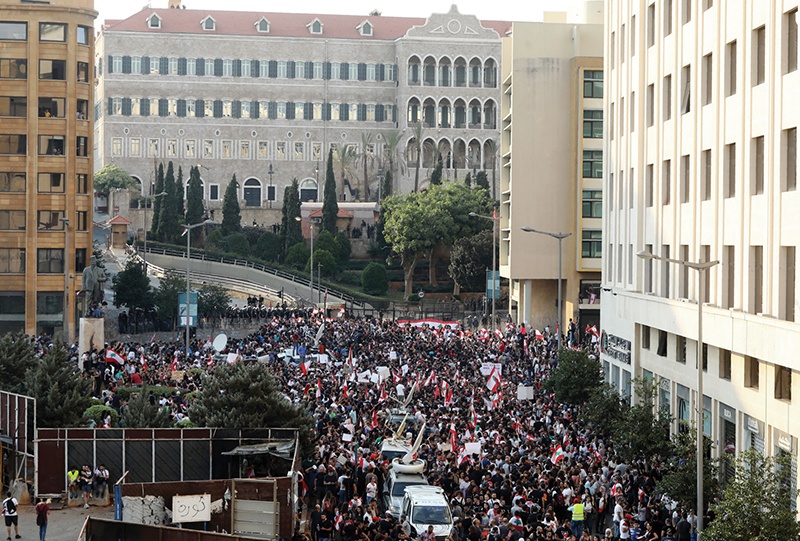
KUWAIT: The first
group of Kuwaiti citizens fleeing the accelerated public protests in Lebanon
arrived to Kuwait yesterday afternoon after Kuwait's Embassy in Beirut urged
all Kuwaitis to contact it in emergency cases to arrange their airborne
evacuation if needed.
In this regard,
Dean of Arab Diplomats and Kuwait's Ambassador to Lebanon Abdul Aal Al-Qenaie
said that as soon as the situations started developing in Beirut, he received direct
instructions from Deputy Prime Minister and Foreign Minister Sheikh Sabah
Al-Khaled Al-Hamad Al-Sabah to exert all possible efforts in order to ensure
the safety of Kuwaiti citizens in Lebanon and secure their safe return as soon
as possible.
Qenaie added that
a special crisis management cell was immediately formed to work 24/7 at the
embassy quarters and Rafiq Al-Hariri international Airport to arrange their
flights out. "Evacuated citizens were instructed to gather at the embassy
and then escorted by Lebanese military and security forces to the
airport," he explained, noting that Kuwait Airways had chartered
additional flights to evacuate citizens in Lebanon.
The Kuwaiti
Embassy in Lebanon had called on citizens who are determined to go to Lebanon
to wait because of the demonstrations and conflicts there. Citizens in Lebanon
must take utmost care and stay away from demonstration areas, the embassy said
in a press statement on Friday, urging them to follow security guidelines and
contact the embassy on the number 00961071171441, in case of emergency
assistance.
Most of Lebanon's
cities and regions witnessed protests, particularly in Aakkar and Tripoli.
Lebanon's National News Agency and television footage confirmed that the
protesters barricaded major roads with burning tires. Roads were blocked at the
south and in the cities of Sidon, Tyre, Nabatieh, Bint Jbeil, Marjayoun and
Hasbaya. Protests have halted most public and private institutions, warning
schools and universities to close and banks to shut down. Demonstrators
condemned the government measures, especially with regard to new taxes and
fees.
By Meshaal
Al-Enezi
.jpg)
